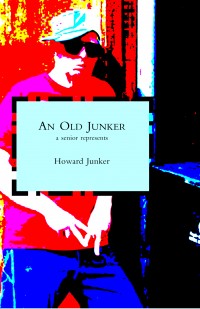Ether
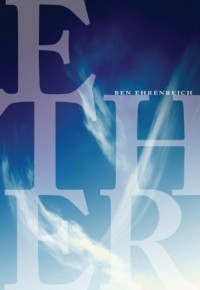 Ether
Ether
by Ben Ehrenreich
City Lights, 2011
144 pages / $13.95 buy from City Lights
Rating: 8.0
Towards the beginning of Ben Ehrenreich’s sophomore novel Ether, we are introduced to an unnamed bag man who carries around his worldly possessions in three bags, which he drags with him wherever he shuffles. The bag man lives in a smoky, charred, polluted world (probably Los Angeles), one where a great calamity appears to have recently occurred, and one where an even greater calamity looms. The world is filled with bands of hostile kids who seem to have outgrown childish pranks and are instead on to kidnapping and torture. The world is also filled with video cameras, some active, some not … all menacing. After a series of unusual setbacks, the bag man eventually falls in with a homophobic priest, two crippled twins in wheelchairs, and several other sad-sack characters, and goes on a search for a vaguely Beast-like figure in a white suit.
If you want Apocalyptic plotlines, Ehrenreich certainly delivers.
January 26th, 2012 / 12:00 pm
The Cyberiad
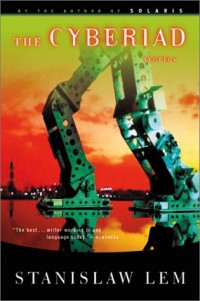 The Cyberiad
The Cyberiad
by Stanislaw Lem
Mariner Books, 2002
312 pages / $13.00 buy from Powell’s
Rating: 8.5
The Cyberiad is labeled as science fiction, but it exists in a world where science is no longer distinguishable from magic. The stories in the book take place in a kind of robot Middle Ages, with mad mechanical kings on tiny planet kingdoms, electronic knights and maidens, and two brilliant constructors named Trurl and Klapaucius who travel from world to world, fabricating wonderfully implausible machines to perform various tasks, from writing brilliant poetry (yes, the robot succeeds in doing this) to distracting a lovelorn king with a “femfatalatron.”
January 3rd, 2012 / 12:09 pm
A “Portable MFA?”
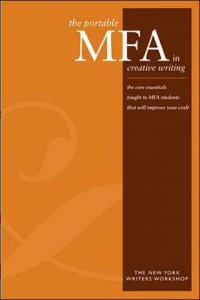 The Portable MFA in Creative Writing
The Portable MFA in Creative Writing
by the New York Writers Workshop
Writers Digest Books, 2006
280 pages / $8.99 (electronic) Buy from Amazon
Rating: 4.7
In August, something called “The Portable MFA in Creative Writing,” written by a group of people from the New York Writers Workshop, was offered as a free download on Amazon. Among its claims: “Get the core knowledge of a prestigious MFA education without the tuition.”
Reader, I downloaded.
READ MORE >
December 1st, 2011 / 4:17 pm
The Disinformation Phase
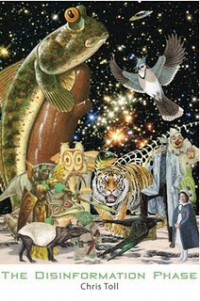 The Disinformation Phase
The Disinformation Phase
by Chris Toll
Publishing Genius Press, 2011
68 pages / $12.00 Buy from Publishing Genius Press
Rating: 8.0
I bought The Disinformation Phase basically because I liked the cover. Then I found out that was actually a good piece of criteria to go on: its author, Chris Toll had made it. It’s a collage of unlikely portrait-sitters, kind of like his poems, which paradoxically at once seem made at home and extraterrestrial, like alien-worshipping cult flyers; you wonder if someone really believes all this.
READ MORE >
November 10th, 2011 / 12:00 pm
Love Doesn’t Work
 Love Doesn’t Work
Love Doesn’t Work
by Henning Koch
Dzanc Books, 2011
143 pages / $16.95 or $7.99 for eBook Buy from Dzanc Books
Rating: 9.0
Short story writing at its best must quickly introduce the outward facts of a given world and create some narrative interest. We see this in Raymond Carver or Alice Munro, who are both brilliant at making us believe by the end of the first sentence that we already understand the world of their stories. And then, of course, there are short story writers that flirt with genre, and this is where Henning Koch’s collection, Love Doesn’t Work seems to belong. While it hovers on the edge of fantasy, there are no swords or dragons in sight. Steven Gillis, the American novelist, once commented that there were parallels between Henning Koch and Raymond Bradbury and this seems quite close to the mark, even though there is really little science fiction in Love Doesn’t Work – mainly a feeling of a strong sense of imagination.
October 27th, 2011 / 12:09 pm
An Old Junker: a senior represents
Imagine that Holden Caulfield survived his adolescence to become a mid-century man of letters, knew some of the good writers, wrote for some of the good magazines, then headed West to found and edit an adventurous arts journal. Imagine that he rereads the best of the 20th century canon for pleasure and chooses to publish new generations of poets, storytellers, photographers and graphic artists solely on the recognizance of his own eclectic taste. Okay, maybe he’s inordinately proud of the prep school and undergrad classmates who made big waves in the culture that used to be, but he’s also willing to stick pins in the pretenders and tell stories on himself.
October 13th, 2011 / 2:05 pm
The Orange Suitcase
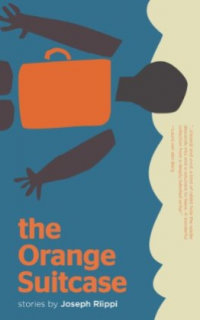 The Orange Suitcase
The Orange Suitcase
by Joseph Riippi
Ampersand Books, 2011
92 pages / $14.95 Buy from Ampersand Books
Rating: 7.0
Memories prop us up like skeletons. Each one exists autonomously, with its own root and biology, but put them together and you’ve got an emotional skeleton, something that helps shape who we are and the way we interact with the world around us. Over the course of the 34 short stories that fill The Orange Suitcase, author Joseph Riippi shines an x-ray on himself and examines a series of bone-like memories that are brief reflections on the formative experiences that make up his own skeleton.
October 11th, 2011 / 12:00 pm
Tree of Codes
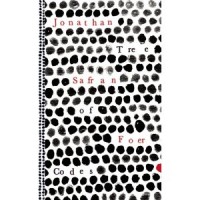 Tree of Codes
Tree of Codes
by Jonathan Safran Foer
Visual Editions, 2010
285 pages / $40.00 Buy from Powell’s
Rating: [ ].5
Note: This review was written by excising words from Michael Faber’s review of Tree of Codes in The Guardian.
[] [ ] [ ] all-time favourite [ ] [ ] [ ] [ ] Cinnamon [ ], retitled [ ] [ ] [] [ ] [ ] [ ] [ ] translated [ ] [ ] [ ] [ ] [ ] . [ ] [ ] [ ] [ ] passive [ ] [ ] vanity [ ] , [ ] [ ] [ ] [ ] [ ] [ ] [ ] [ ] [ ] [ ] compulsion [ ] [ ] [ ] [ ] [ ]. [ ] [ ] [ ] [ ] love [ ] [ ]? [ ] [ ] [ ] [ ] [ ] [ ] [ ] [ ] [ ] No, [ ] [ ] already done [ ] [ ] [ ] [ ] [ ] [] [ ] [ ] [ ] [ ] [ ] [ ] [] sadly [ ] here. So, [ ] [ ] [ ] [ ] [ ] [ ] [ ] [ ] [ ]fresh [ ]? [ ] [ ] [ ] [ ] [ ] [ ] [ ] dream [ ] mutterings faithfulness [ ] bankroll [ ]?
September 22nd, 2011 / 12:06 pm
The Stats on Infinity
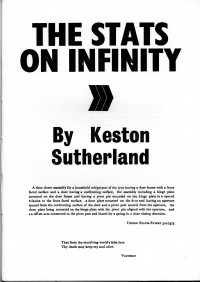 The Stats on Infinity
The Stats on Infinity
by Keston Sutherland
Crater Press, 2010
15 pages / Out of Print
Rating: 8.0
I don’t know how familiar readers of this site will be with the work of Keston Sutherland, the British experimental poet sometimes associated with the Cambridge and New York “LANGUAGE” schools of poetry (though Sutherland’s work squirms uneasily under any attempt at definition in terms of school/genre/whatever). Sutherland’s poetry is difficult. A video of Sutherland reading his long poem Hot White Andy is a good introduction to his work: intense, surging and bewildering. He looks manic as he reads; the text is plosive and works through him, as though it is spilling out of his body rather than his mind, like Lucky’s monologue in Waiting for Godot, or the frenetic mutterings of Not I.
September 20th, 2011 / 1:09 pm
Wire to Wire
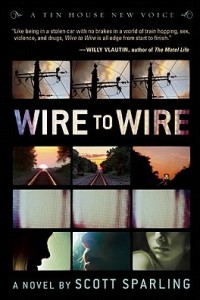 Wire to Wire
Wire to Wire
by Scott Sparling
Tin House Books, 2011
392 pages / $15.95 Buy from Tin House Books
Rating: 9.5
America is too diverse and American culture too fast evolving to produce A Great American Novel. I do believe, though, in an Essential American Shelf, as long as it needs to be to hold all the voices that speak artfully, truthfully and with compassion about their chosen hunk of psycho-social real estate. Scott Sparling’s Wire to Wire claims a place on my personal instance of that shelf, snugged up somewhere between William Kennedy and Charles Bukowski, between Theodore Dreiser and Flannery O’Connor, rubbing elbows with the best of the noir detectives and assorted snotty 1980s boy nihilists.
September 15th, 2011 / 3:07 pm

